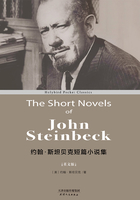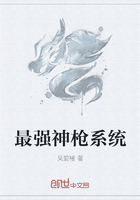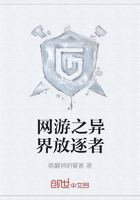After such a scene as the last, Walter Morel was for some daysabashed and ashamed, but he soon regained his old bullying indifference. Yet there was a slight shrinking, a diminishing in his assurance.Physically even, he shrank, and his fine full presence waned.He never grew in the least stout, so that, as he sank from his erect, assertive bearing, his physique seemed to contract along with his pride and moral strength.
But now he realised how hard it was for his wife to drag about at her work, and, his sympathy quickened by penitence, hastened forward with his help. He came straight home from the pit, and stayed in at evening till Friday, and then he could not remain at home.But he was back again by ten o'clock, almost quite sober.
He always made his own breakfast. Being a man who rose early and had plenty of time he did not, as some miners do, drag his wife out of bed at six o'clock.At five, sometimes earlier, he woke, got straight out of bed, and went downstairs.When she could not sleep, his wife lay waiting for this time, as for a period of peace.The only real rest seemed to be when he was out of the house.
He went downstairs in his shirt and then struggled into his pit-trousers, which were left on the hearth to warm all night. There was always a fire, because Mrs.Morel raked.And the first sound in the house was the bang, bang of the poker against the raker, as Morel smashed the remainder of the coal to make the kettle, which was filled and left on the hob, finally boil.His cup and knife and fork, all he wanted except just the food, was laid ready on the table on a newspaper.Then he got his breakfast, made the tea, packed the bottom of the doors with rugs to shut out the draught, piled a big fire, and sat down to an hour of joy.He toasted his bacon on a fork and caught the drops of fat on his bread; then he put the rasher on his thick slice of bread, and cut off chunks with a clasp-knife, poured his tea into his saucer, and was happy.With his family about, meals were never so pleasant.He loathed a fork:it is a modern introduction which has still scarcely reached common people.What Morelpreferred was a clasp-knife.Then, in solitude, he ate and drank, often sitting, in cold weather, on a little stool with his back to the warm chimney-piece, his food on the fender, his cup on the hearth.And then he read the last night's newspaper-what of it he could-spelling it over laboriously.He preferred to keep the blinds down and the candle lit even when it was daylight; it was the habit of the mine.
At a quarter to six he rose, cut two thick slices of bread and butter, and put them in the white calico snap-bag. He filled his tin bottle with tea.Cold tea without milk or sugar was the drink he preferred for the pit.Then he pulled off his shirt, and put on his pit-singlet, a vest of thick flannel cut low round the neck, and with short sleeves like a chemise.
Then he went upstairs to his wife with a cup of tea because she was ill, and because it occurred to him.
“I've brought thee a cup o'tea, lass, ”he said.
“Well, you needn't, for you know I don't like it, ”she replied.
“Drink it up; it'll pop thee off to sleep again.”
She accepted the tea. It pleased him to see her take it and sip it.
“I'll back my life there's no sugar in, ”she said.
“Yi-there's one big'un, ”he replied, injured.
“It's a wonder, ”she said, sipping again.
She had a winsome face when her hair was loose. He loved her to grumble at him in this manner.He looked at her again, and went, without any sort of leave-taking.He never took more than two slices of bread and butter to eat in the pit, so an apple or an orange was a treat to him.He always liked it when she put one out for him.He tied a scarf round his neck, put on his great, heavy boots, his coat, with the big pocket, that carried his snap-bag and his bottle of tea, and went forth into the fresh morning air, closing, without locking, the door behind him.He loved the early morning, and the walk across the fields.So he appeared at the pit-top, often with a stalk from the hedge between his teeth, which he chewed all day to keep his mouth moist, down the mine, feeling quite as happy as when he was in the field.
Later, when the time for the baby grew nearer, he would bustle round in his slovenly fashion, poking out the ashes, rubbing the fireplace, sweeping thehouse before he went to work. Then, feeling very self-righteous, he went upstairs.
“Now I'm cleaned up for thee:tha's no'casions ter stir a peg all day, but sit and read thy books.”
Which made her laugh, in spite of her indignation.
“And the dinner cooks itself?”she answered.
“Eh, I know nowt about th'dinner.”
“You'd know if there weren't any.”
“Ay, 'appen so, ”he answered, departing.
When she got downstairs, she would find the house tidy, but dirty. She could not rest until she had thoroughly cleaned; so she went down to the ash-pit with her dustpan.Mrs.Kirk, spying her, would contrive to have to go to her own coal-place at that minute.Then, across the wooden fence, she would call:
“So you keep wagging on, then?”
“Ay, ”answered Mrs. Morel deprecatingly.“There's nothing else for it.”
“Have you seen Hose?”called a very small woman from across the road. It was Mrs.Anthony, a black-haired, strange little body, who always wore a brown velvet dress, tight fitting.
“I haven't, ”said Mrs. Morel.
“Eh, I wish he'd come. I've got a copperful of clothes, an'I'm sure I heered his bell.”
“Hark!He's at the end.”
The two women looked down the alley. At the end of the Bottoms a man stood in a sort of old-fashioned trap, bending over bundles of cream-coloured stuff; while a cluster of women held up their arms to him, some with bundles.Mrs.Anthony herself had a heap of creamy, undyed stockings hanging over her arm.
“I've done ten dozen this week, ”she said proudly to Mrs. Morel.
“T-t-t!”went the other.“I don't know how you can find time.”
“Eh!”said Mrs. Anthony.“You can find time if you make time.”
“I don't know how you do it, ”said Mrs. Morel.“And how much shall you get for those many?”
“Tuppence-ha'penny a dozen, ”replied the other.
“Well, ”said Mrs. Morel.“I'd starve before I'd sit down and seam twenty-four stockings for twopence ha'penny.”
“Oh, I don't know, ”said Mrs. Anthony.“You can rip along with'em.”
Hose was coming along, ringing his bell. Women were waiting at the yard-ends with their seamed stockings hanging over their arms.The man, a common fellow, made jokes with them, tried to swindle them, and bullied them.Mrs.Morel went up her yard disdainfully.
It was an understood thing that if one woman wanted her neighbour, she should put the poker in the fire and bang at the back of the fireplace, which, as the fires were back to back, would make a great noise in the adjoining house. One morning Mrs.Kirk, mixing a pudding, nearly started out of her skin as she heard the thud, thud, in her grate.With her hands all floury, she rushed to the fence.
“Did you knock, Mrs. Morel?”
“If you wouldn't mind, Mrs. Kirk.”
Mrs. Kirk climbed on to her copper, got over the wall on to Mrs.Morel's copper, and ran in to her neighbour.
“Eh, dear, how are you feeling?”she cried in concern.
“You might fetch Mrs. Bower, ”said Mrs.Morel.
Mrs. Kirk went into the yard, lifted up her strong, shrill voice, and called:
“Ag-gie-Ag-gie!”
The sound was heard from one end of the Bottoms to the other. At last Aggie came running up, and was sent for Mrs.Bower, whilst Mrs.Kirk left her pudding and stayed with her neighbour.
Mrs. Morel went to bed.Mrs.Kirk had Annie and William for dinner.Mrs.Bower, fat and waddling, bossed the house.
“Hash some cold meat up for the master's dinner, and make him an apple-charlotte pudding, ”said Mrs. Morel.
“He may go without pudding this day, ”said Mrs. Bower.
Morel was not as a rule one of the first to appear at the bottom of the pit, ready to come up. Some men were there before four o'clock, when the whistle blew loose-all; but Morel, whose stall, a poor one, was at this time about a mileand a half away from the bottom, worked usually till the first mate stopped, then he finished also.This day, however, the miner was sick of the work.At two o'clock he looked at his watch, by the light of the green candle-he was in a safe working-and again at half-past two.He was hewing at a piece of rock that was in the way for the next day's work.As he sat on his heels, or kneeled, giving hard blows with his pick, “Uszza-uszza!”he went.
“Shall ter finish, Sorry?”cried Barker, his fellow butty.
“Finish?Niver while the world stands!”growled Morel.
And he went on striking. He was tired.
“It's a heart-breaking job, ”said Barker.
But Morel was too exasperated, at the end of his tether, to answer. Still he struck and hacked with all his might.
“Tha might as well leave it, Walter, ”said Barker.“It'll do to-morrow, without thee hackin'thy guts out.”
“I'll lay no b--finger on this to-morrow, Isr'el!”cried Morel.
“Oh, well, if tha wunna, somebody else'll ha'e to, ”said Israel.
Then Morel continued to strike.
“Hey-up there-loose-a'!”cried the men, leaving the next stall.
Morel continued to strike.
“Tha'll happen catch me up, ”said Barker, departing.
When he had gone, Morel, left alone, felt savage. He had not finished his job.He had overworked himself into a frenzy.Rising, wet with sweat, he threw his tool down, pulled on his coat, blew out his candle, took his lamp, and went.Down the main road the lights of the other men went swinging.There was a hollow sound of many voices.It was a long, heavy tramp underground.
He sat at the bottom of the pit, where the great drops of water fell plash. Many colliers were waiting their turns to go up, talking noisily.Morel gave his answers short and disagreeable.
“It's rainin', Sorry, ”said old Giles, who had had the news from the top.
Morel found one comfort. He had his old umbrella, which he loved, in the lamp cabin.At last he took his stand on the chair, and was at the top in a moment.Then he handed in his lamp and got his umbrella, which he had bought at an auction for one-and-six.He stood on the edge of the pit-bank fora moment, looking out over the fields; grey rain was falling.The trucks stood full of wet, bright coal.Water ran down the sides of the waggons, over the white“C.W.and Co.”.Colliers, walking indifferent to the rain, were streaming down the line and up the field, a grey, dismal host.Morel put up his umbrella, and took pleasure from the peppering of the drops thereon.
All along the road to Bestwood the miners tramped, wet and grey and dirty, but their red mouths talking with animation. Morel also walked with a gang, but he said nothing.He frowned peevishly as he went.Many men passed into the Prince of Wales or into Ellen's.Morel, feeling sufficiently disagreeable to resist temptation, trudged along under the dripping trees that overhung the park wall, and down the mud of Greenhill Lane.
Mrs. Morel lay in bed, listening to the rain, and the feet of the colliers from Minton, their voices, and the bang, bang of the gates as they went through the stile up the field.
“There's some herb beer behind the pantry door, ”she said.“Th'master'll want a drink, if he doesn't stop.”
But he was late, so she concluded he had called for a drink, since it was raining. What did he care about the child or her?
She was very ill when her children were born.
“What is it?”she asked, feeling sick to death.
“A boy.”
And she took consolation in that. The thought of being the mother of men was warming to her heart.She looked at the child.It had blue eyes, and a lot of fair hair, and was bonny.Her love came up hot, in spite of everything.She had it in bed with her.
Morel, thinking nothing, dragged his way up the garden path, wearily and angrily. He closed his umbrella, and stood it in the sink; then he sluthered his heavy boots into the kitchen.Mrs.Bower appeared in the inner doorway.
“Well, ”she said, “she's about as bad as she can be. It's a boy childt.”
The miner grunted, put his empty snap-bag and his tin bottle on the dresser, went back into the scullery and hung up his coat, then came and dropped into his chair.
“Han yer got a drink?”he asked.
The woman went into the pantry. There was heard the pop of a cork.She set the mug, with a little, disgusted rap, on the table before Morel.He drank, gasped, wiped his big moustache on the end of his scarf, drank, gasped, and lay back in his chair.The woman would not speak to him again.She set his dinner before him, and went upstairs.
“Was that the master?”asked Mrs. Morel.
“I've gave him his dinner, ”replied Mrs. Bower.
After he had sat with his arms on the table-he resented the fact that Mrs. Bower put no cloth on for him, and gave him a little plate, instead of a full-sized dinner-plate-he began to eat.The fact that his wife was ill, that he had another boy, was nothing to him at that moment.He was too tired; he wanted his dinner; he wanted to sit with his arms lying on the board; he did not like having Mrs.Bower about.The fire was too small to please him.
After he had finished his meal, he sat for twenty minutes; then he stoked up a big fire. Then, in his stockinged feet, he went reluctantly upstairs.It was a struggle to face his wife at this moment, and he was tired.His face was black, and smeared with sweat.His singlet had dried again, soaking the dirt in.He had a dirty woollen scarf round his throat.So he stood at the foot of the bed.
“Well, how are ter, then?”he asked.
“I s'll be all right, ”she answered.
“H'm!”
He stood at a loss what to say next. He was tired, and this bother was rather a nuisance to him, and he didn't quite know where he was.
“A lad, tha says, ”he stammered.
She turned down the sheet and showed the child.
“Bless him!”he murmured. Which made her laugh, because he blessed by rote-pretending paternal emotion, which he did not feel just then.
“Go now, ”she said.
“I will, my lass, ”he answered, turning away.
Dismissed, he wanted to kiss her, but he dared not. She half wanted him to kiss her, but could not bring herself to give any sign.She only breathed freely when he was gone out of the room again, leaving behind him a faint smell of pit-dirt.
Mrs. Morel had a visit every day from the Congregational clergyman.Mr.Heaton was young, and very poor.His wife had died at the birth of his first baby, so he remained alone in the manse.He was a Bachelor of Arts of Cambridge, very shy, and no preacher.Mrs.Morel was fond of him, and he depended on her.For hours he talked to her, when she was well.He became the god-parent of the child.
Occasionally the minister stayed to tea with Mrs. Morel.Then she laid the cloth early, got out her best cups, with a little green rim, and hoped Morel would not come too soon; indeed, if he stayed for a pint, she would not mind this day.She had always two dinners to cook, because she believed children should have their chief meal at midday, whereas Morel needed his at five o'clock.So Mr.Heaton would hold the baby, whilst Mrs.Morel beat up a batter-pudding or peeled the potatoes, and he, watching her all the time, would discuss his next sermon.His ideas were quaint and fantastic.She brought him judiciously to earth.It was a discussion of the wedding at Cana.
“When He changed the water into wine at Cana, ”he said, “that is a symbol that the ordinary life, even the blood, of the married husband and wife, which had before been uninspired, like water, became filled with the Spirit, and was as wine, because, when love enters, the whole spiritual constitution of a man changes, is filled with the Holy Ghost, and almost his form is altered.”
Mrs. Morel thought to herself:
“Yes, poor fellow, his young wife is dead; that is why he makes his love into the Holy Ghost.”
They were halfway down their first cup of tea when they heard the sluther of pit-boots.
“Good gracious!”exclaimed Mrs. Morel, in spite of herself.
The minister looked rather scared. Morel entered.He was feeling rather savage.He nodded a“How d'yer do”to the clergyman, who rose to shake hands with him.
“Nay, ”said Morel, showing his hand, “look thee at it!Tha niver wants ter shake hands wi'a hand like that, does ter?There's too much pick-haft and shovel-dirt on it.”
The minister flushed with confusion, and sat down again. Mrs.Morel rose, carried out the steaming saucepan.Morel took off his coat, dragged his armchair to table, and sat down heavily.
“Are you tired?”asked the clergyman.
“Tired?I ham that, ”replied Morel.“YOU don't know what it is to be tired, as I'M tired.”
“No, ”replied the clergyman.
“Why, look yer'ere, ”said the miner, showing the shoulders of his singlet.“It's a bit dry now, but it's wet as a clout with sweat even yet. Feel it.”
“Goodness!”cried Mrs. Morel.“Mr.Heaton doesn't want to feel your nasty singlet.”
The clergyman put out his hand gingerly.
“No, perhaps he doesn't, ”said Morel; “but it's all come out of me, whether or not. An'iv'ry day alike my singlet's wringin’wet.’Aven’t you got a drink, Missis, for a man when he comes home barkled up from the pit?”
“You know you drank all the beer, ”said Mrs. Morel, pouring out his tea.
“An'was there no more to be got?”Turning to the clergyman-“A man gets that caked up wi'th'dust, you know, -that clogged up down a coal-mine, he NEEDS a drink when he comes home.”
“I am sure he does, ”said the clergyman.
“But it's ten to one if there's owt for him.”
“There's water-and there's tea, ”said Mrs. Morel.
“Water!It's not water as'll clear his throat.”
He poured out a saucerful of tea, blew it, and sucked it up through his great black moustache, sighing afterwards. Then he poured out another saucerful, and stood his cup on the table.
“My cloth!”said Mrs. Morel, putting it on a plate.
“A man as comes home as I do's too tired to care about cloths, ”said Morel.
“Pity!”exclaimed his wife, sarcastically.
The room was full of the smell of meat and vegetables and pit-clothes.
He leaned over to the minister, his great moustache thrust forward, his mouth very red in his black face.
“Mr. Heaton, ”he said, “a man as has been down the black hole all day, dingin'away at a coal-face, yi, a sight harder than that wall--”
“Needn't make a moan of it, ”put in Mrs. Morel.
She hated her husband because, whenever he had an audience, he whined and played for sympathy. William, sitting nursing the baby, hated him, with a boy's hatred for false sentiment, and for the stupid treatment of his mother.Annie had never liked him; she merely avoided him.
When the minister had gone, Mrs. Morel looked at her cloth.
“A fine mess!”she said.
“Dos't think I'm goin'to sit wi'my arms danglin', cos tha’s got a parson for tea wi’thee?”he bawled.
They were both angry, but she said nothing. The baby began to cry, and Mrs.Morel, picking up a saucepan from the hearth, accidentally knocked Annie on the head, whereupon the girl began to whine, and Morel to shout at her.In the midst of this pandemonium, William looked up at the big glazed text over the mantelpiece and read distinctly:
“God Bless Our Home!”
Whereupon Mrs. Morel, trying to soothe the baby, jumped up, rushed at him, boxed his ears, saying:
“What are you putting in for?”
And then she sat down and laughed, till tears ran over her cheeks, while William kicked the stool he had been sitting on, and Morel growled:
“I canna see what there is so much to laugh at.”
One evening, directly after the parson's visit, feeling unable to bear herself after another display from her husband, she took Annie and the baby and went out. Morel had kicked William, and the mother would never forgive him.
She went over the sheep-bridge and across a corner of the meadow to the cricket-ground. The meadows seemed one space of ripe, evening light, whispering with the distant mill-race.She sat on a seat under the alders in the cricket-ground, and fronted the evening.Before her, level and solid, spread the big green cricket-field, like the bed of a sea of light.Children played in the bluish shadow of the pavilion.Many rooks, high up, came cawing home across the softly-woven sky.They stooped in a long curve down into the golden glow, concentrating, cawing, wheeling, like black flakes on a slow vortex, over a treeclump that made a dark boss among the pasture.
A few gentlemen were practising, and Mrs. Morel could hear the chock of the ball, and the voices of men suddenly roused; could see the white forms of men shifting silently over the green, upon which already the under shadows were smouldering.Away at the grange, one side of the haystacks was lit up, the other sides blue-grey.A waggon of sheaves rocked small across the melting yellow light.
The sun was going down. Every open evening, the hills of Derbyshire were blazed over with red sunset.Mrs.Morel watched the sun sink from the glistening sky, leaving a soft flower-blue overhead, while the western space went red, as if all the fire had swum down there, leaving the bell cast flawless blue.The mountain-ash berries across the field stood fierily out from the dark leaves, for a moment.A few shocks of corn in a corner of the fallow stood up as if alive; she imagined them bowing; perhaps her son would be a Joseph.In the east, a mirrored sunset floated pink opposite the west's scarlet.The big haystacks on the hillside, that butted into the glare, went cold.
With Mrs. Morel it was one of those still moments when the small frets vanish, and the beauty of things stands out, and she had the peace and the strength to see herself.Now and again, a swallow cut close to her.Now and again, Annie came up with a handful of alder-currants.The baby was restless on his mother's knee, clambering with his hands at the light.
Mrs. Morel looked down at him.She had dreaded this baby like a catastrophe, because of her feeling for her husband.And now she felt strangely towards the infant.Her heart was heavy because of the child, almost as if it were unhealthy, or malformed.Yet it seemed quite well.But she noticed the peculiar knitting of the baby's brows, and the peculiar heaviness of its eyes, as if it were trying to understand something that was pain.She felt, when she looked at her child's dark, brooding pupils, as if a burden were on her heart.
“He looks as if he was thinking about something-quite sorrowful, ”said Mrs. Kirk.
Suddenly, looking at him, the heavy feeling at the mother's heart melted into passionate grief. She bowed over him, and a few tears shook swiftly out of her very heart.The baby lifted his fingers.
“My lamb!”she cried softly.
And at that moment she felt, in some far inner place of her soul, that she and her husband were guilty.
The baby was looking up at her. It had blue eyes like her own, but its look was heavy, steady, as if it had realised something that had stunned some point of its soul.
In her arms lay the delicate baby. Its deep blue eyes, always looking up at her unblinking, seemed to draw her innermost thoughts out of her.She no longer loved her husband; she had not wanted this child to come, and there it lay in her arms and pulled at her heart.She felt as if the navel string that had connected its frail little body with hers had not been broken.A wave of hot love went over her to the infant.She held it close to her face and breast.With all her force, with all her soul she would make up to it for having brought it into the world unloved.She would love it all the more now it was here; carry it in her love.Its clear, knowing eyes gave her pain and fear.Did it know all about her?When it lay under her heart, had it been listening then?Was there a reproach in the look?She felt the marrow melt in her bones, with fear and pain.
Once more she was aware of the sun lying red on the rim of the hill opposite. She suddenly held up the child in her hands.
“Look!”she said.“Look, my pretty!”
She thrust the infant forward to the crimson, throbbing sun, almost with relief. She saw him lift his little fist.Then she put him to her bosom again, ashamed almost of her impulse to give him back again whence he came.
“If he lives, ”she thought to herself, “what will become of him-what will he be?”
Her heart was anxious.
“I will call him Paul, ”she said suddenly; she knew not why.
After a while she went home. A fine shadow was flung over the deep green meadow, darkening all.
As she expected, she found the house empty. But Morel was home by ten o'clock, and that day, at least, ended peacefully.
Walter Morel was, at this time, exceedingly irritable. His work seemed to exhaust him.When he came home he did not speak civilly to anybody.If thefire were rather low he bullied about that; he grumbled about his dinner; if the children made a chatter he shouted at them in a way that made their mother's blood boil, and made them hate him.
On the Friday, he was not home by eleven o'clock. The baby was unwell, and was restless, crying if he were put down.Mrs.Morel, tired to death, and still weak, was scarcely under control.
“I wish the nuisance would come, ”she said wearily to herself.
The child at last sank down to sleep in her arms. She was too tired to carry him to the cradle.
“But I'll say nothing, whatever time he comes, ”she said.“It only works me up; I won't say anything. But I know if he does anything it'll make my blood boil, ”she added to herself.
She sighed, hearing him coming, as if it were something she could not bear. He, taking his revenge, was nearly drunk.She kept her head bent over the child as he entered, not wishing to see him.But it went through her like a flash of hot fire when, in passing, he lurched against the dresser, setting the tins rattling, and clutched at the white pot knobs for support.He hung up his hat and coat, then returned, stood glowering from a distance at her, as she sat bowed over the child.
“Is there nothing to eat in the house?”he asked, insolently, as if to a servant. In certain stages of his intoxication he affected the clipped, mincing speech of the towns.Mrs.Morel hated him most in this condition.
“You know what there is in the house, ”she said, so coldly, it sounded impersonal.
He stood and glared at her without moving a muscle.
“I asked a civil question, and I expect a civil answer, ”he said affectedly.
“And you got it, ”she said, still ignoring him.
He glowered again. Then he came unsteadily forward.He leaned on the table with one hand, and with the other jerked at the table drawer to get a knife to cut bread.The drawer stuck because he pulled sideways.In a temper he dragged it, so that it flew out bodily, and spoons, forks, knives, a hundred metallic things, splashed with a clatter and a clang upon the brick floor.The baby gave a little convulsed start.
“What are you doing, clumsy, drunken fool?”the mother cried.
“Then tha should get the flamin'thing thysen. Tha should get up, like other women have to, an'wait on a man.”
“Wait on you-wait on you?”she cried.“Yes, I see myself.”
“Yis, an'I'll learn thee tha's got to. Wait on me, yes tha sh'lt wait on me--”
“Never, milord. I'd wait on a dog at the door first.”
“What-what?”
He was trying to fit in the drawer. At her last speech be turned round.His face was crimson, his eyes bloodshot.He stared at her one silent second in threat.
“P-h!”she went quickly, in contempt.
He jerked at the drawer in his excitement. It fell, cut sharply on his shin, and on the reflex he flung it at her.
One of the corners caught her brow as the shallow drawer crashed into the fireplace. She swayed, almost fell stunned from her chair.To her very soul she was sick; she clasped the child tightly to her bosom.A few moments elapsed; then, with an effort, she brought herself to.The baby was crying plaintively.Her left brow was bleeding rather profusely.As she glanced down at the child, her brain reeling, some drops of blood soaked into its white shawl; but the baby was at least not hurt.She balanced her head to keep equilibrium, so that the blood ran into her eye.
Walter Morel remained as he had stood, leaning on the table with one hand, looking blank. When he was sufficiently sure of his balance, he went across to her, swayed, caught hold of the back of her rocking-chair, almost tipping her out; then leaning forward over her, and swaying as he spoke, he said, in a tone of wondering concern:
“Did it catch thee?”
He swayed again, as if he would pitch on to the child. With the catastrophe he had lost all balance.
“Go away, ”she said, struggling to keep her presence of mind.
He hiccoughed.“Let's-let's look at it, ”he said, hiccoughing again.
“Go away!”she cried.
“Lemme-lemme look at it, lass.”
She smelled him of drink, felt the unequal pull of his swaying grasp on the back of her rocking-chair.
“Go away, ”she said, and weakly she pushed him off.
He stood, uncertain in balance, gazing upon her. Summoning all her strength she rose, the baby on one arm.By a cruel effort of will, moving as if in sleep, she went across to the scullery, where she bathed her eye for a minute in cold water; but she was too dizzy.Afraid lest she should swoon, she returned to her rocking-chair, trembling in every fibre.By instinct, she kept the baby clasped.
Morel, bothered, had succeeded in pushing the drawer back into its cavity, and was on his knees, groping, with numb paws, for the scattered spoons.
Her brow was still bleeding. Presently Morel got up and came craning his neck towards her.
“What has it done to thee, lass?”he asked, in a very wretched, humble tone.
“You can see what it's done, ”she answered.
He stood, bending forward, supported on his hands, which grasped his legs just above the knee. He peered to look at the wound.She drew away from the thrust of his face with its great moustache, averting her own face as much as possible.As he looked at her, who was cold and impassive as stone, with mouth shut tight, he sickened with feebleness and hopelessness of spirit.He was turning drearily away, when he saw a drop of blood fall from the averted wound into the baby's fragile, glistening hair.Fascinated, he watched the heavy dark drop hang in the glistening cloud, and pull down the gossamer.Another drop fell.It would soak through to the baby's scalp.He watched, fascinated, feeling it soak in; then, finally, his manhood broke.
“What of this child?”was all his wife said to him. But her low, intense tones brought his head lower.She softened:“Get me some wadding out of the middle drawer, ”she said.
He stumbled away very obediently, presently returning with a pad, which she singed before the fire, then put on her forehead, as she sat with the baby on her lap.
“Now that clean pit-scarf.”
Again he rummaged and fumbled in the drawer, returning presently with a red, narrow scarf. She took it, and with trembling fingers proceeded to bind it round her head.
“Let me tie it for thee, ”he said humbly.
“I can do it myself, ”she replied. When it was done she went upstairs, telling him to rake the fire and lock the door.
In the morning Mrs. Morel said:
“I knocked against the latch of the coal-place, when I was getting a raker in the dark, because the candle blew out.”Her two small children looked up at her with wide, dismayed eyes. They said nothing, but their parted lips seemed to express the unconscious tragedy they felt.
Walter Morel lay in bed next day until nearly dinner-time. He did not think of the previous evening's work.He scarcely thought of anything, but he would not think of that.He lay and suffered like a sulking dog.He had hurt himself most; and he was the more damaged because he would never say a word to her, or express his sorrow.He tried to wriggle out of it.“It was her own fault, ”he said to himself.Nothing, however, could prevent his inner consciousness inflicting on him the punishment which ate into his spirit like rust, and which he could only alleviate by drinking.
He felt as if he had not the initiative to get up, or to say a word, or to move, but could only lie like a log. Moreover, he had himself violent pains in the head.It was Saturday.Towards noon he rose, cut himself food in the pantry, ate it with his head dropped, then pulled on his boots, and went out, to return at three o'clock slightly tipsy and relieved; then once more straight to bed.He rose again at six in the evening, had tea and went straight out.
Sunday was the same:bed till noon, the Palmerston Arms till 2. 30, dinner, and bed; scarcely a word spoken.When Mrs.Morel went upstairs, towards four o'clock, to put on her Sunday dress, he was fast asleep.She would have felt sorry for him, if he had once said, “Wife, I'm sorry.”But no; he insisted to himself it was her fault.And so he broke himself.So she merely left him alone.There was this deadlock of passion between them, and she was stronger.
The family began tea. Sunday was the only day when all sat down tomeals together.
“Isn't my father going to get up?”asked William.
“Let him lie, ”the mother replied.
There was a feeling of misery over all the house. The children breathed the air that was poisoned, and they felt dreary.They were rather disconsolate, did not know what to do, what to play at.
Immediately Morel woke he got straight out of bed. That was characteristic of him all his life.He was all for activity.The prostrated inactivity of two mornings was stifling him.
It was near six o'clock when he got down. This time he entered without hesitation, his wincing sensitiveness having hardened again.He did not care any longer what the family thought or felt.
The tea-things were on the table. William was reading aloud from“The Child's Own”, Annie listening and asking eternally“why?”Both children hushed into silence as they heard the approaching thud of their father's stockinged feet, and shrank as he entered.Yet he was usually indulgent to them.
Morel made the meal alone, brutally. He ate and drank more noisily than he had need.No one spoke to him.The family life withdrew, shrank away, and became hushed as he entered.But he cared no longer about his alienation.
Immediately he had finished tea he rose with alacrity to go out. It was this alacrity, this haste to be gone, which so sickened Mrs.Morel.As she heard him sousing heartily in cold water, heard the eager scratch of the steel comb on the side of the bowl, as he wetted his hair, she closed her eyes in disgust.As he bent over, lacing his boots, there was a certain vulgar gusto in his movement that divided him from the reserved, watchful rest of the family.He always ran away from the battle with himself.Even in his own heart's privacy, he excused himself, saying, “If she hadn't said so-and-so, it would never have happened.She asked for what she's got.”The children waited in restraint during his preparations.When he had gone, they sighed with relief.
He closed the door behind him, and was glad. It was a rainy evening.The Palmerston would be the cosier.He hastened forward in anticipation.All the slate roofs of the Bottoms shone black with wet.The roads, always dark with coal-dust, were full of blackish mud.He hastened along.The Palmerstonwindows were steamed over.The passage was paddled with wet feet.But the air was warm, if foul, and full of the sound of voices and the smell of beer and smoke.
“What shollt ha'e, Walter?”cried a voice, as soon as Morel appeared in the doorway.
“Oh, Jim, my lad, wheriver has thee sprung frae?”
The men made a seat for him, and took him in warmly. He was glad.In a minute or two they had thawed all responsibility out of him, all shame, all trouble, and he was clear as a bell for a jolly night.
On the Wednesday following, Morel was penniless. He dreaded his wife.Having hurt her, he hated her.He did not know what to do with himself that evening, having not even twopence with which to go to the Palmerston, and being already rather deeply in debt.So, while his wife was down the garden with the child, he hunted in the top drawer of the dresser where she kept her purse, found it, and looked inside.It contained a half-crown, two halfpennies, and a sixpence.So he took the sixpence, put the purse carefully back, and went out.
The next day, when she wanted to pay the greengrocer, she looked in the purse for her sixpence, and her heart sank to her shoes. Then she sat down and thought:“Was there a sixpence?I hadn't spent it, had I?And I hadn't left it anywhere else?”
She was much put about. She hunted round everywhere for it.And, as she sought, the conviction came into her heart that her husband had taken it.What she had in her purse was all the money she possessed.But that he should sneak it from her thus was unbearable.He had done so twice before.The first time she had not accused him, and at the week-end he had put the shilling again into her purse.So that was how she had known he had taken it.The second time he had not paid back.
This time she felt it was too much. When he had had his dinner-he came home early that day-she said to him coldly:
“Did you take sixpence out of my purse last night?”
“Me!”he said, looking up in an offended way.“No, I didna!I niver clapped eyes on your purse.”
But she could detect the lie.
“Why, you know you did, ”she said quietly.
“I tell you I didna, ”he shouted.“Yer at me again, are yer?I've had about enough on't.”
“So you filch sixpence out of my purse while I'm taking the clothes in.”
“I'll may yer pay for this, ”he said, pushing back his chair in desperation. He bustled and got washed, then went determinedly upstairs.Presently he came down dressed, and with a big bundle in a blue-checked, enormous handkerchief.
“And now, ”he said, “you'll see me again when you do.”
“It'll be before I want to, ”she replied; and at that he marched out of the house with his bundle. She sat trembling slightly, but her heart brimming with contempt.What would she do if he went to some other pit, obtained work, and got in with another woman?But she knew him too well-he couldn't.She was dead sure of him.Nevertheless her heart was gnawed inside her.
“Where's my dad?”said William, coming in from school.
“He says he's run away, ”replied the mother.
“Where to?”
“Eh, I don't know. He's taken a bundle in the blue handkerchief, and says he's not coming back.”
“What shall we do?”cried the boy.
“Eh, never trouble, he won't go far.”
“But if he doesn't come back, ”wailed Annie.
And she and William retired to the sofa and wept. Mrs.Morel sat and laughed.
“You pair of gabeys!”she exclaimed.“You'll see him before the night's out.”
But the children were not to be consoled. Twilight came on.Mrs.Morel grew anxious from very weariness.One part of her said it would be a relief to see the last of him; another part fretted because of keeping the children; and inside her, as yet, she could not quite let him go.At the bottom, she knew very well he could not go.
When she went down to the coal-place at the end of the garden, however, she felt something behind the door. So she looked.And there in the dark lay the big blue bundle.She sat on a piece of coal and laughed.Every time she saw it, so fat and yet so ignominious, slunk into its corner in the dark, with its ends flopping like dejected ears from the knots, she laughed again.She was relieved.
Mrs. Morel sat waiting.He had not any money, she knew, so if he stopped he was running up a bill.She was very tired of him-tired to death.He had not even the courage to carry his bundle beyond the yard-end.
As she meditated, at about nine o'clock, he opened the door and came in, slinking, and yet sulky. She said not a word.He took off his coat, and slunk to his armchair, where he began to take off his boots.
“You'd better fetch your bundle before you take your boots off, ”she said quietly.
“You may thank your stars I've come back to-night, ”he said, looking up from under his dropped head, sulkily, trying to be impressive.
“Why, where should you have gone?You daren't even get your parcel through the yard-end, ”she said.
He looked such a fool she was not even angry with him. He continued to take his boots off and prepare for bed.
“I don't know what's in your blue handkerchief, ”she said.“But if you leave it the children shall fetch it in the morning.”
Whereupon he got up and went out of the house, returning presently and crossing the kitchen with averted face, hurrying upstairs. As Mrs.Morel saw him slink quickly through the inner doorway, holding his bundle, she laughed to herself:but her heart was bitter, because she had loved him.















